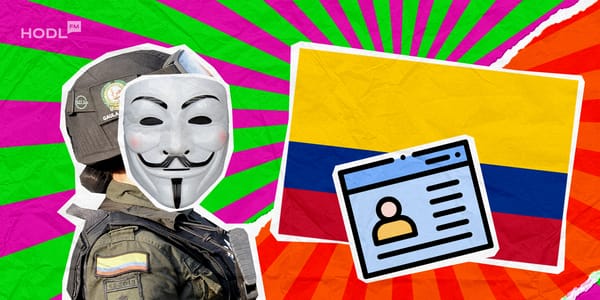The Philippine government has introduced a blockchain‑based transparency platform for the Department of Public Works and Highways (DPWH) following nationwide protests over alleged corruption in flood‑control projects worth billions of pesos.
The new system, called Integrity Chain, was developed by local firm BayaniChain Ventures. It will record public works contracts, budget releases, and project milestones on a tamper‑proof ledger, giving citizens direct visibility into how government funds are used.
Integrity Chain for public works
BayaniChain CEO and co‑founder Paul Soliman said during the launch on Wednesday that the initiative aims to transform “government records into digital public assets that are immutable, verifiable, and openly validated.”
Soliman added that once Integrity Chain is expanded beyond DPWH, it could safeguard the country’s full 98 billion USD‑equivalent annual budget.
“Accountability in government spending should be permanent, measurable, and unavoidable,” he said.
Public Works Secretary Vince Dizon told reporters that losses from corruption in flood‑control projects may exceed ₱1 trillion ($17 billion), a figure he said could surpass the ill‑gotten wealth attributed to former President Ferdinand Marcos Sr. during his martial law regime.
Blockchain design and validators
Integrity Chain ingests project data directly from DPWH servers. Each record is converted into a digital asset, cryptographically time‑stamped, and then anchored on the Polygon proof‑of‑stake blockchain, an Ethereum‑compatible network used for scaling and transparency.
Validation relies on Prismo, BayaniChain’s orchestration layer managing data encryption and access. According to Gelo Wong, BayaniChain’s chief growth officer, the platform uses a one‑organization‑one‑vote model.
Validators include universities, civic organizations, non‑governmental groups, and media institutions. All validator actions are logged publicly, with hardware‑secured keys rotated regularly.
“Any attempt to withhold or manipulate information becomes immediately visible to the public record,” Wong explained.
At launch, more than 40 NGOs signed on as validators, creating what Wong described as “a wide and diversified base for civic accountability.”
Context: protests and flood‑control failures
The rollout follows large‑scale demonstrations on September 21 that brought an estimated 130,000 people to the streets of Manila and other cities. Protesters expressed outrage over reports that billions of pesos earmarked for flood‑control systems were diverted through defective contracts, inflated costs, or projects that were never built.
The date carried symbolism, coinciding with the 53rd anniversary of martial law declared by Marcos Sr., remembered for corruption and human rights abuses.
Since taking office in 2022, President Ferdinand Marcos Jr. has pushed forward nearly 10,000 flood‑control projects valued at ₱546 billion ($9.5 billion). But recent flooding across urban centers has undermined public trust in these initiatives. Senate inquiries and whistleblower testimony in September alleged that government engineers, politicians, and contractors extracted kickbacks from major projects.
One protester was quoted as saying: “There’s a tree of emptiness plaguing my country. It’s called corruption. It’s time we cut it down.”
Broader shift toward blockchain accountability
Integrity Chain builds on earlier reforms at the Department of Budget and Management, which last month deployed a blockchain‑based validation network for official financial documents to prevent forgery and combat AI‑generated deepfakes.
Separately, Senator Bam Aquino has announced his intention to file legislation that would place the entire national budget on a blockchain ledger, making every peso traceable in real time. Aquino acknowledged the political difficulties but framed the proposal as the boldest transparency measure in Philippine history.
Meanwhile, Congressman Miguel Luis Villafuerte has introduced a bill calling for a strategic bitcoin reserve, aiming to accumulate 10,000 BTC over five years.
Outlook
While blockchain adoption in government remains experimental worldwide, the Philippine rollout is one of the first large‑scale deployments targeted at reducing graft in public infrastructure projects. Estonia, Georgia, and Brazil have piloted blockchain systems for governance, but no country has yet placed its entire budget process fully on‑chain.
For now, Integrity Chain will serve as a test case: whether cryptographic records and civic‑led validation can succeed where decades of anti‑corruption policies and oversight bodies have often failed.

Disclaimer: All materials on this site are for informational purposes only. None of the material should be interpreted as investment advice. Please note that despite the nature of much of the material created and hosted on this website, HODL FM is not a financial reference resource, and the opinions of authors and other contributors are their own and should not be taken as financial advice. If you require advice. HODL FM strongly recommends contacting a qualified industry professional.





